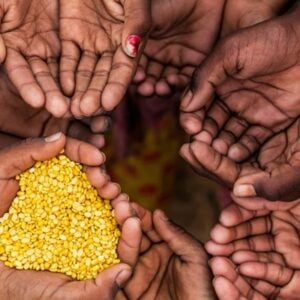The XI Regional School Feeding Forum for Latin America and the Caribbean began on 15 July 2025 in San Pedro Sula, Honduras, gathering around 200 participants from 18 countries. Government ministers, UN agencies, civil society, and financial institutions are taking part in the three-day forum co-organized by the Government of Honduras and the UN World Food Programme (WFP). The event aims to reinforce national commitments and transform school meal programmes into tools for social protection, inclusion, and sustainability.
Across the region, government-led school feeding programmes reach over 80 million children, making Latin America and the Caribbean the second-largest provider globally after South Asia. With an annual investment of around USD 7.6 billion, these programmes increasingly use local and seasonal produce, supporting farmers and improving food quality. School meals are proven to boost enrollment, improve nutrition, and provide a significant return on investment—ranging from USD 7 to USD 35 for every dollar spent.
In the region, the high average cost of a healthy diet—USD 4.56 per person per day, the most expensive globally—leaves around 180 million people unable to afford proper nutrition. Climate change is projected to increase this cost by 34% by 2050, intensifying food insecurity.
As the forum’s host, Honduras showcased its investments in school feeding. Between 2022 and 2025, it will invest over USD 140 million to deliver fortified meals to more than 1.2 million children in public pre-primary and primary schools. The National School Feeding Programme, led by the Ministry of Social Development (SEDESOL), reaches nearly 43% of public school children and includes a strong focus on Indigenous and Afro-Honduran communities. Efforts also include over 4,000 school gardens and the launch of a National Network of Agricultural Schools to promote food autonomy through local production.
WFP supports national programmes across the region, tailoring its assistance to local needs—from repurposing shipping containers into school kitchens in El Salvador, to supporting nutrition in conflict-affected areas like Haiti and the Andean highlands. These efforts help reach students in vulnerable zones facing drought, social exclusion, and food insecurity.
Throughout the forum, participants are discussing the value of school feeding for social protection, sustainability, and resilience. A new report, “More than a Meal”, co-produced by WFP and the Inter-American Development Bank (IDB), will be presented. It outlines how school meals in Guatemala and Peru can efficiently address malnutrition.
The forum also serves as preparation for the upcoming 2nd Global School Feeding Summit, to be held in Fortaleza, Brazil, later in 2025. Latin America and the Caribbean continue to lead in expanding school feeding programmes to meet urgent challenges such as hunger, poor nutrition, and climate vulnerability.







